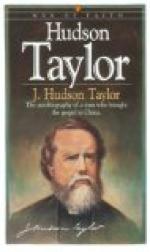* * *
Pinched by famine and menaced by foe
In the cruel winters of long ago,
They worked and prayed and for freedom
wrought,
Freedom of speech and freedom of thought.
Frederica Davis Hatfield.
* * *
The burning of Kingston seemed unnecessarily cruel, and it is said that Vaughan was wide of the truth when, to justify the same, he claimed that he had been fired upon from dwellings in the village. General Sharpe in his address before the Holland Society says: “The history of this county begins to be interesting at the earliest stages of American history: Visited by Dutchmen in 1614, and again in 1620, it was in the very earliest Colonial history, one of the strong places of the Province of New York. The British museum contains the report of the Rev. John Miller, written in the year 1695, who, after ’having been nearly three years resident in the Province of New York, in America, as chaplain of His Majesty’s forces there, and constantly attending the Governor, had opportunity of observing many things of considerable consequence in relation to the Christians and Indians, and had also taken the drafts of all the cities, towns, forts and churches of any note within the same.’ These are his own words, and he adds that in the Province of New York ’the places of strength are chiefly three, the city of New York, the city of Albany, and the town of Kingstone, in Ulster.’ The east, north and west fronts ran along elevations overlooking the lowlands and having a varying altitude of from twenty to thirty feet. The enclosure comprehended about twenty-five acres of land. There were salients, or horn works at each end of the four angles, with a circular projection at the middle of the westerly side, where the elevation was less than upon the northerly and easterly sides. The church standing upon the ground where we now are, was enclosed with a separate stockade, to be used as the last resort in case of disaster, and, projecting from this separate fortification, a strong block-house commanded and enfiladed the approaches to the southerly side, which was a plain. The local history is of continued and dramatic interest. The Indian wars were signalized by a great uprising and attack here, which was known as the war of 1663, when a considerable number of the inhabitants were killed, a still larger number were taken prisoners, and about one-fourth of the houses were burned to the ground. Reinforcements were sent by the governor-general from New Amsterdam, followed by his personal presence, when the Indians were driven back to the mountains, and, after a tedious campaign, their fields destroyed and the prisoners recaptured. When the next great crisis in our history came Kingston bore a conspicuous part. It was the scene of the formation of the State Government. The Constitution was here discussed and adopted. George Clinton was called from the Highlands, where, as a brigadier-general of the Continental




